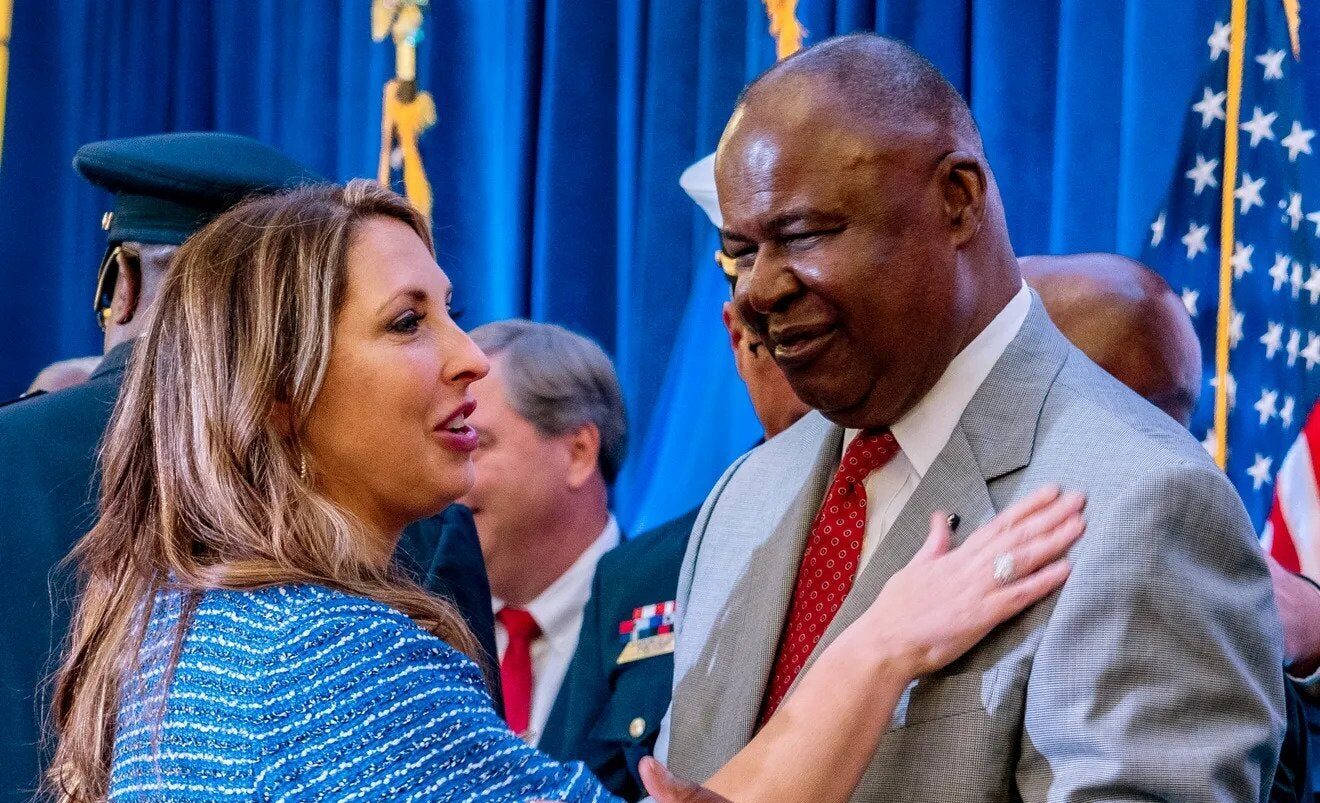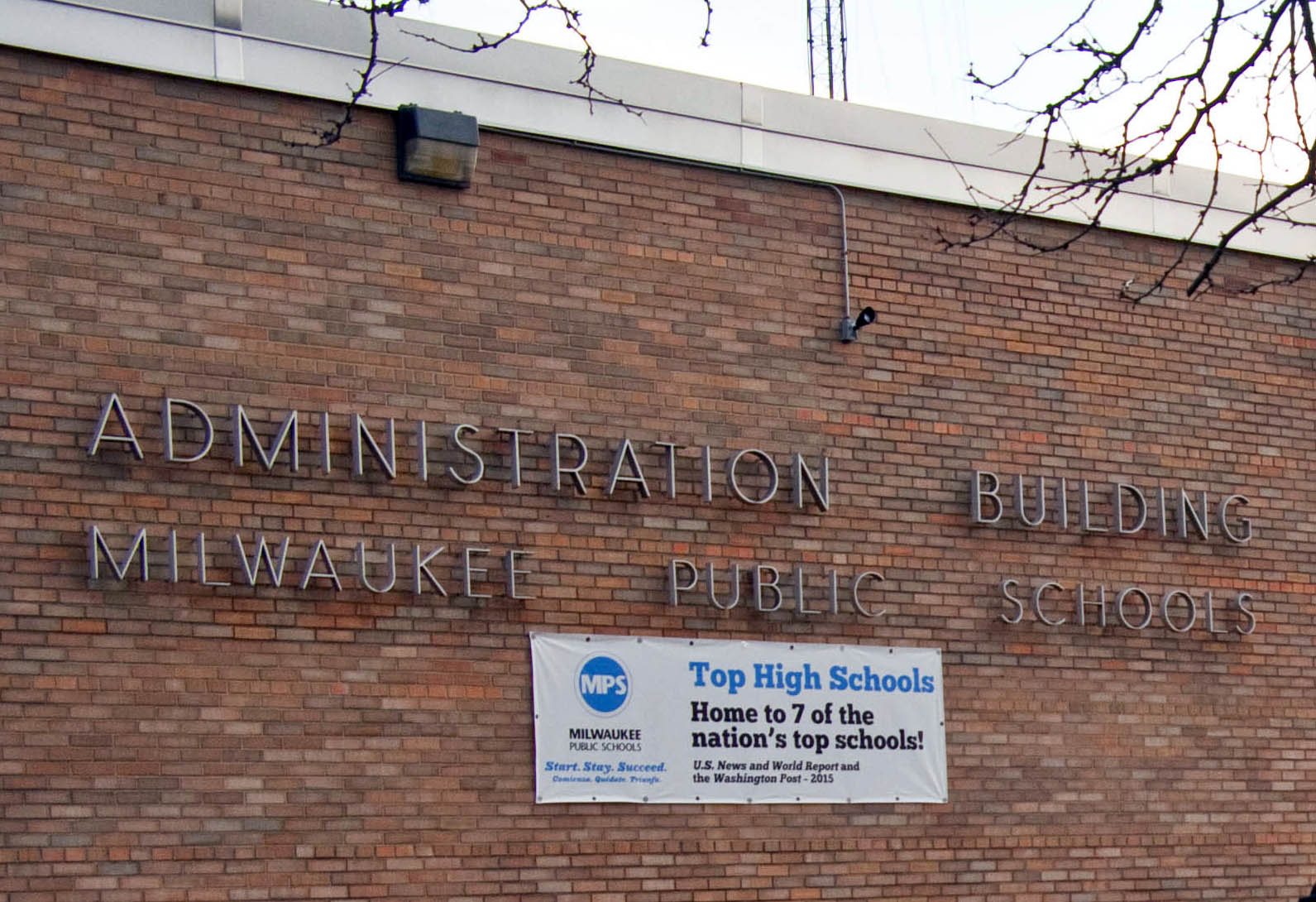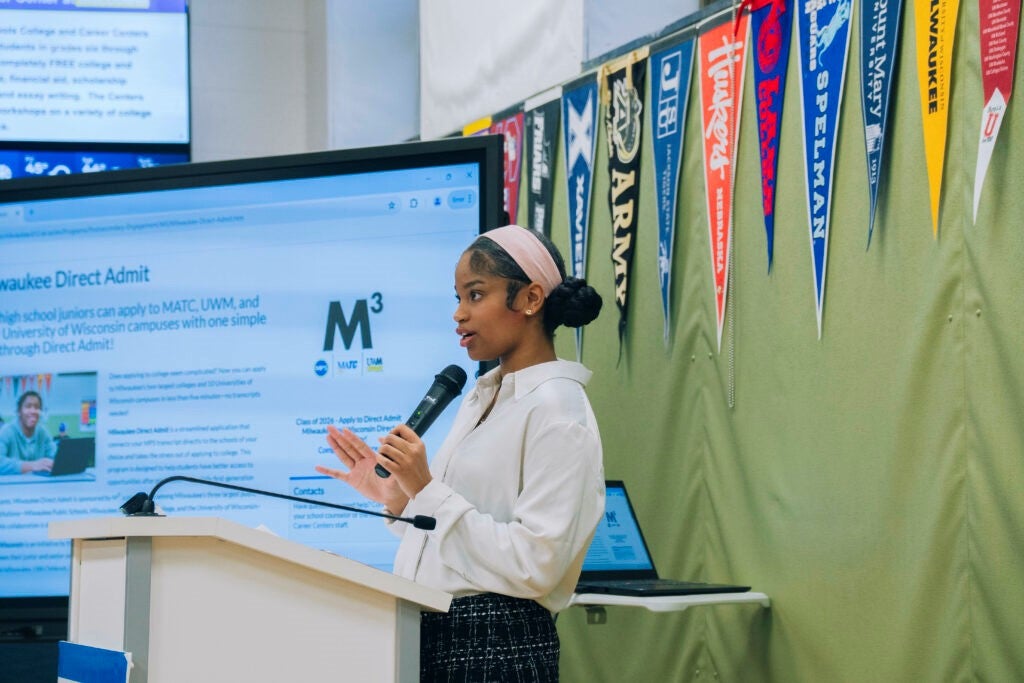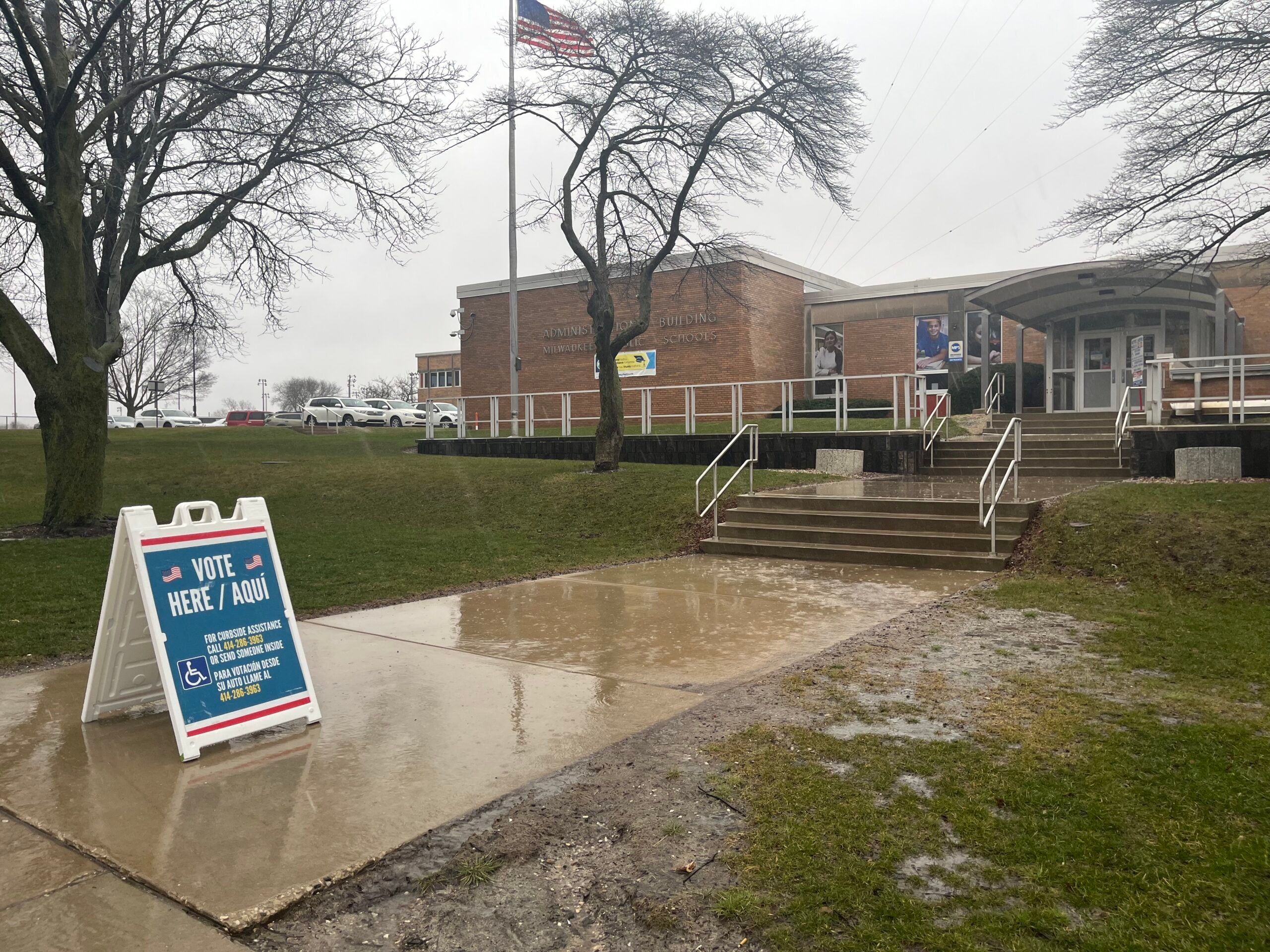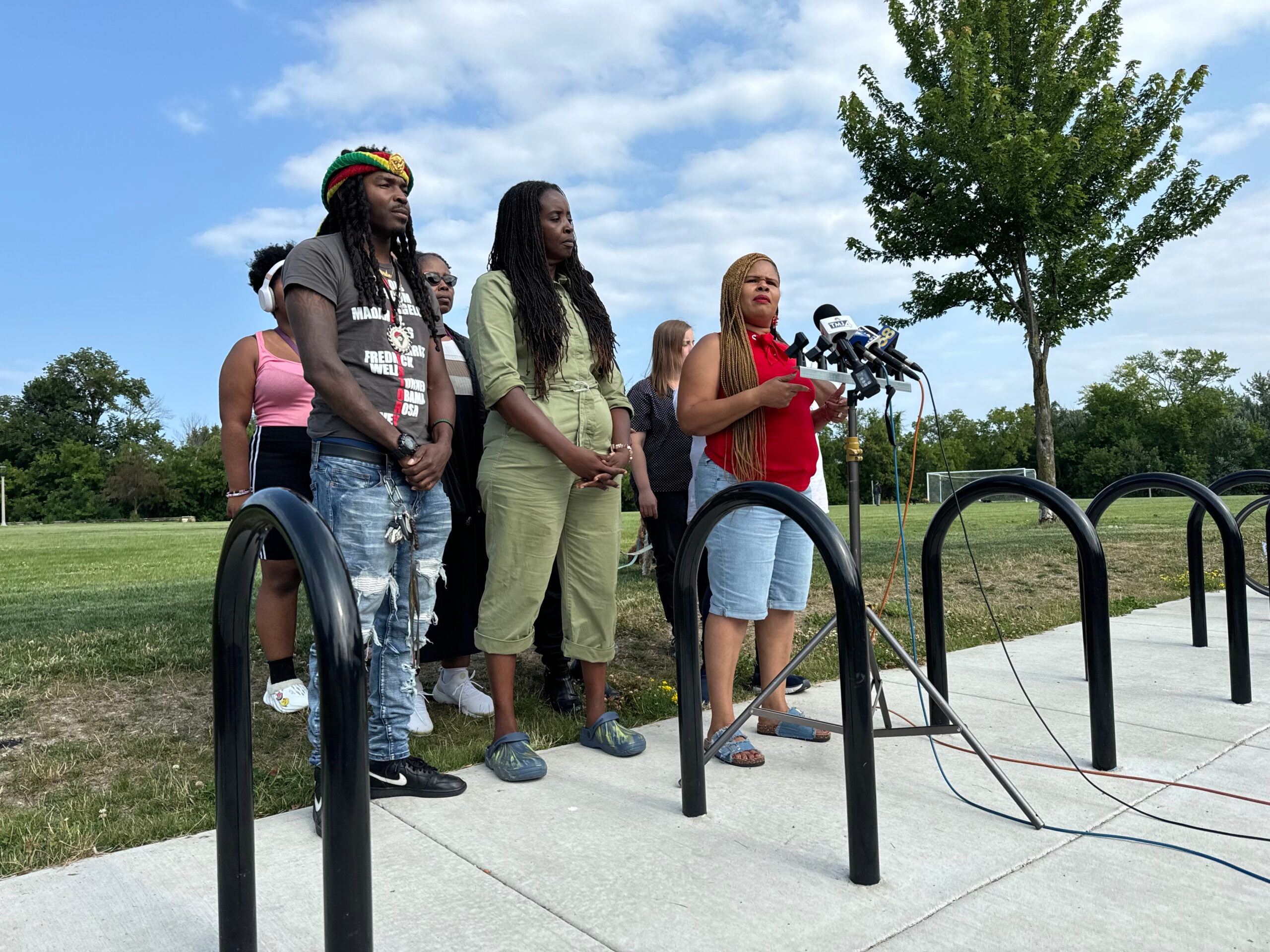Some Milwaukee Board of School Directors members are questioning whether a local nonprofit that has received nearly $1.3 million in no-bid district contracts over the past decade is delivering on its promises to improve student achievement.
Several high-profile officials say the nonprofit has listed them in tax filings as board officers without their knowledge. They include Milwaukee Mayor Cavalier Johnson; State Superintendent of Public Instruction Jill Underly; Milwaukee Public Schools Superintendent Keith Posley; Milwaukee Area Technical College President Vicki Martin; and University of Wisconsin-Milwaukee Chancellor Mark Mone.
Gerard Randall is the executive director and sole employee of the nonprofit Milwaukee Education Partnership, created to boost student outcomes and teacher retention.
Stay informed on the latest news
Sign up for WPR’s email newsletter.
Randall, who serves on a variety of boards of Milwaukee nonprofits, is also first vice chair of the Republican Party of Wisconsin and secretary of the host committee for the 2024 Republican National Convention, which will be held in Milwaukee.
The Milwaukee Education Partnership gained a national reputation 25 years ago for bringing together groups across the region to improve educational and economic outcomes in the state’s largest school district. But the group lost steam when its founder, then-UW-Milwaukee Chancellor Nancy Zimpher, left town in 2003.
Randall took over in 2011.
At its inception, the partnership included the Metropolitan Milwaukee Association of Commerce, the Milwaukee teachers union, MATC and UW-Milwaukee. But over the last several years, all have ended their association with the partnership.
Randall told Wisconsin Public Radio his group “still collaborates” with MATC and UW-Milwaukee.
MATC and UW-Milwaukee confirmed they left the partnership in 2017 and 2018, respectively, but did not give reasons why they left.
The Milwaukee school board was scheduled to renew its annual contract with Milwaukee Education Partnership on Sept. 19, but questions from board members postponed the vote.
Freshman school board member questions vague contract language
School board member Missy Zombor, elected in April, began examining Milwaukee Education Partnership after being appointed to the committee that approves all district contracts.
“Milwaukee Public Schools have a lot of really amazing partnerships that help us improve outcomes and provide vital resources for tens of thousands of students every single day, but we also have very limited resources, so we need to scrutinize every single penny that we spend,” Zombor said.
Seeking to learn more about the partnership, Zombor visited its website and found that it featured years-old reports and listed names of people no longer associated with the group.
Then she examined the district’s contracts with the group.
“I think what stood out to me in that contract is the services were very difficult to quantify,” Zombor.
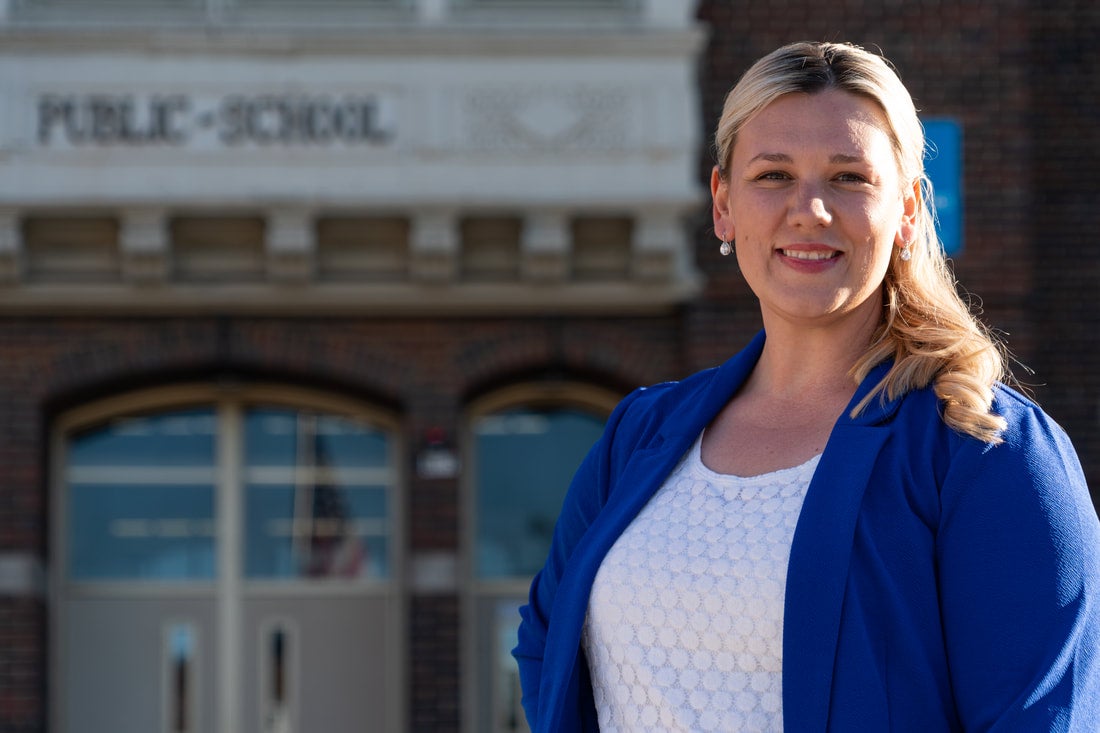
One such listed service, she said, would read something like: “Supporting MPS efforts to enhance the quality of teaching and learning.” Or another: “Support the mission of urban teacher residency united to build and manage a national network of high performing urban teachers.”
“It sounds great, but what exactly does a fully executed contract look like if those are the services we are receiving? How do we measure the deliverables for something so vague?” Zombor said. “Sometimes as board members, we have to ask tough questions, even if we know we might not like the answer.””
MPS has spent $1.29 million on the partnership since 2012, records show. Its most recent no-bid contracts, signed in 2021 and 2022, totaled $139,170.
District guidelines allow officials to waive competitive bidding for contracts under $5,000, contracts that provide a “one-of-a-kind” service or those needed for continuity that also demonstrate “quantifiable or qualitative savings.”
The partnership received $75,000 to “enhance the quality of teaching and learning in Milwaukee Public Schools,” one contract states. Last year, the partnership received a second contract, this one for $64,170. That money was for the group’s Milwaukee Connects program, which aims to “enhance the pipeline of graduates from Historically Black Colleges and Universities (HBCUs) to Milwaukee,” according to the contract.
The contract required the partnership to provide 10 graduating MPS students with semester-long paid internships to include professional mentoring, housing and transportation between Oct. 1, 2022, and Sept. 30, 2023.
Randall declined a request for a phone interview. Asked in an email whether the internships took place, Randall told WPR “a cohort is being developed for the semester beginning January 2024.”
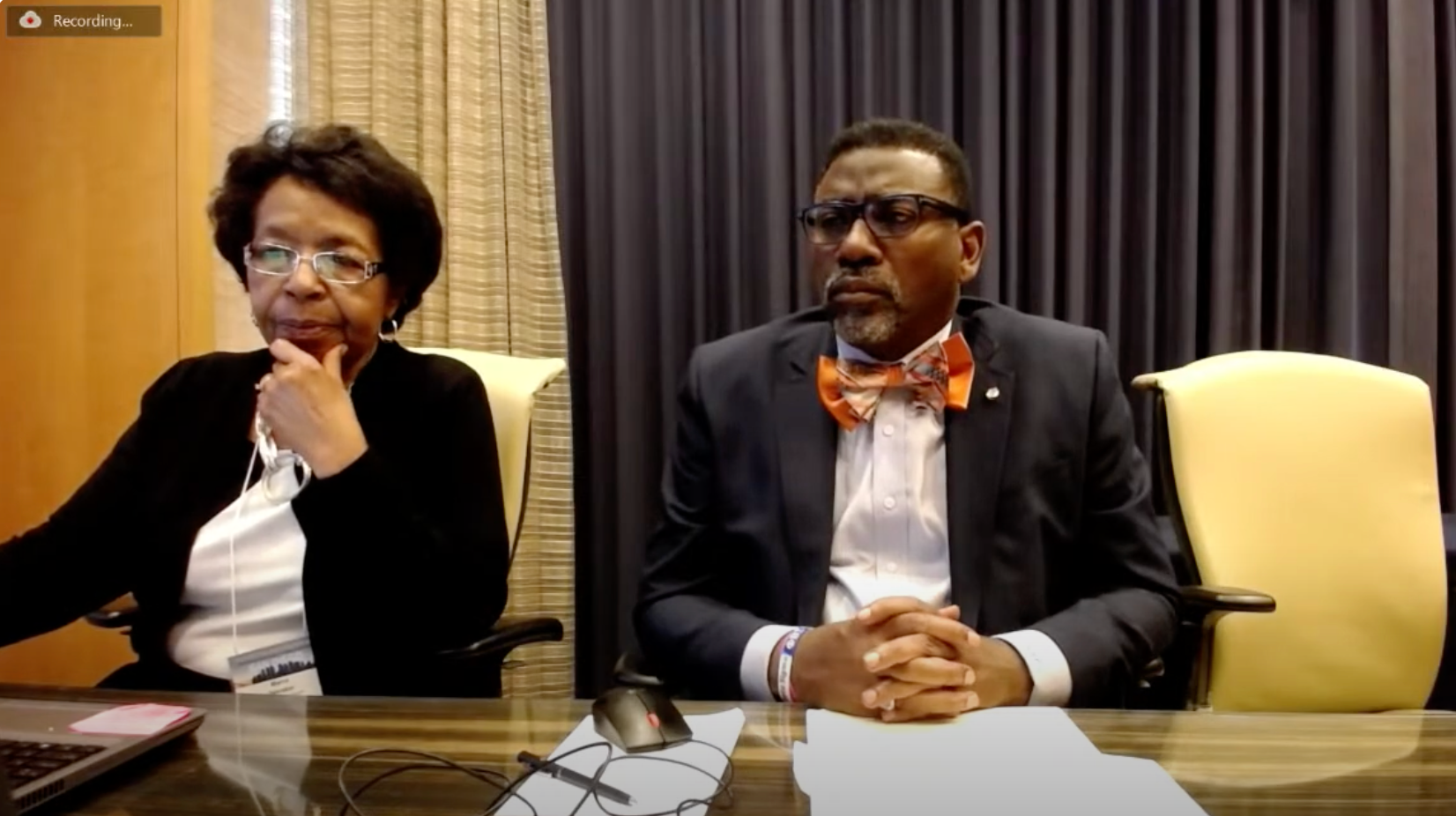
The district already paid the partnership the maximum contracted amount: $64,170 over two invoices, according to documents obtained by WPR.
In response to further questions, Randall wrote in an email: “What’s your angle?” and did not respond to additional queries.
Neither a Milwaukee Public Schools spokesperson nor Posley responded to repeated questions since September about the partnership’s contracts.
Posley did, however, clarify that he does not serve in leadership positions with the partnership, despite its claims.
The partnership’s most recent 990 report, filed in 2022, listed Posley as its president, alongside 10 other board officers.
Posley said he was unaware of the listing. Nor did he know the partnership’s website identified him as one of 12 executive partners who “guide the organization.”
“I am not the President of the Milwaukee Education Partnership and do not serve on its leadership team,” Posley said in a statement to WPR. “I have communicated with the MEP directing them to remove my name and photo from their website and to stop identifying me as the President of their organization or as a member of their leadership team.”
Others listed on the 990 as directors include Vicki Martin, president of MATC, and UW-Milwaukee Chancellor Mark Mone — both of whom were also identified online as executive partners.
“UWM cannot comment on MEP’s website or documents, as it maintains neither, but UWM ended its formal relationship with MEP in 2018,” a UW-Milwaukee spokesperson said.
MATC spokesperson Darryll Fortune said the school has asked the partnership to remove Martin’s name from its website, but Randall did not respond. MATC was unaware the 990 report included her name.
“We tried to reach MEP by phone in the last few years multiple times to ask them to update the website, but the phone number listed on the website was out of service,” Fortune said.
The partnership also lists Milwaukee Mayor Cavalier Johnson and State Superintendent Jill Underly as directors and executive partners.
“The mayor may be nominally listed as a board member, however he has not had any leadership or oversight role in the organization,” Johnson spokesperson Jeff Fleming said in an email.
A DPI spokesperson said Underly has no affiliation with the Milwaukee Education Partnership and was not aware she was listed on the website.
Questions about partnership raised at board meeting
During an Oct. 26 school board meeting, board member Henry Leonard, who serves as the board’s delegate to the partnership, gave an update on the group.
Randall didn’t attend but provided a one-page summary of last quarter’s activities.
They included:
- Collaboration with the Milwaukee Public Schools College and Career Access Centers on the Summerfest grounds to connect with families and encourage them to apply.
- Working with the national Leading Men Fellowship program, which came to Milwaukee five years ago.
- Co-sponsoring the Historically Black College Universities College Fair at Vincent High School in October.
- Partnering with the UW-Madison Thompson Center on Public Leadership to host a Dec. 13, 2023, webinar, featuring the National Center for Teacher Residencies’ “successful educator development program for African American males.”
Randall also reported a new partner for his group: UW-Madison’s School of Education.
Randall has discussed with the School of Education’s Teacher Education Center “partnership-related activities, with a specific focus on recruiting students from Milwaukee into our teacher certification programs,” a school spokesperson confirmed.
Leonard said Randall would be open to speaking to the board directly to clear up any concerns or misunderstandings.
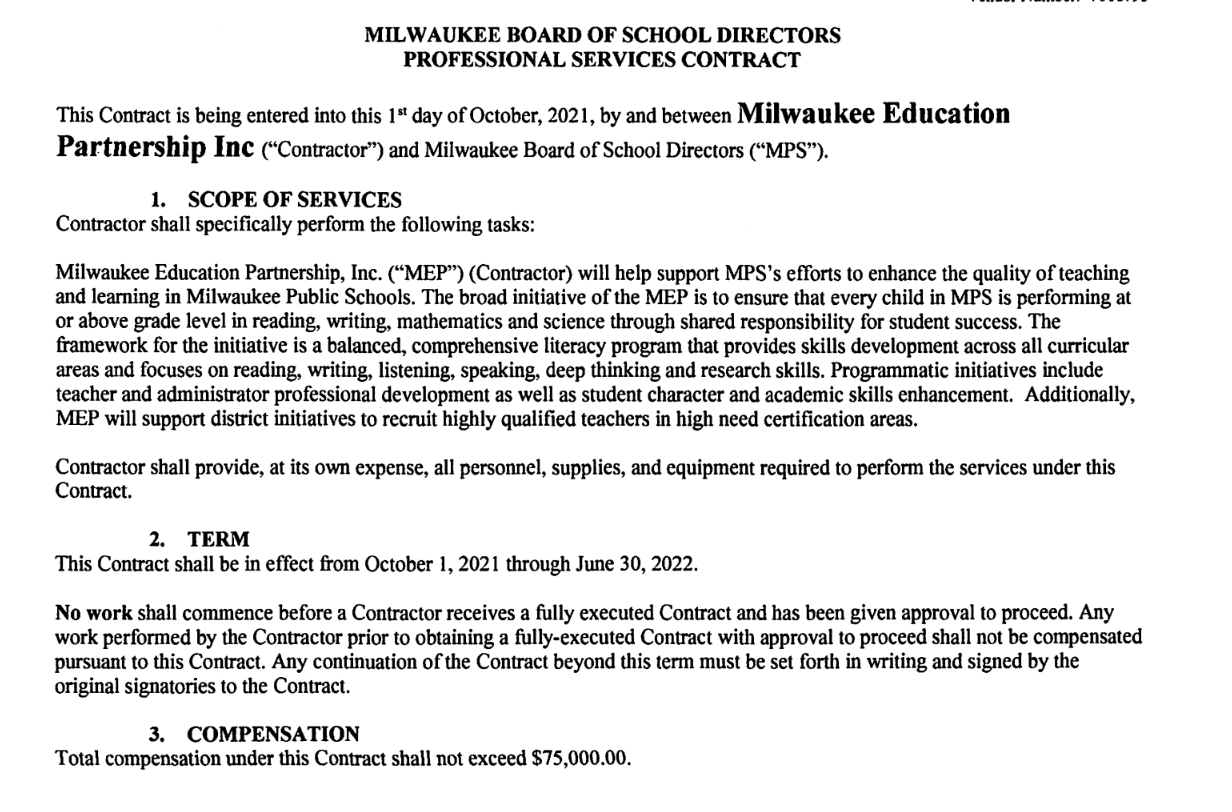
Zombor told her colleagues she worried Randall is duplicating or taking credit for the work already performed in the district.
For instance, the district’s Department of Black and Latino Male Achievement, established in 2017, already serves male students of color, she said. The Department of College and Career Readiness works with community groups and institutions to connect students with college, technical education and career planning.
The work additionally resembles the UW-Milwaukee-based program called M3 or M-cubed, a partnership between UW-Milwaukee, MPS and MATC aimed at increasing graduation rates and college readiness, Zombor said.
“One of the issues for me is we have M-cubed. We didn’t when the partnership first started,” Zombor later told WPR in an interview. “To me, it’s really not necessary to have the (Milwaukee Education) partnership.”
In an email, Randall said his work complements the district’s newer programs.
Nadelle Grossman, Marquette University’s associate dean for academic affairs and a law professor specializing in business associations and contracts, examined the last two contracts with the partnership at WPR’s request.
MPS enjoyed generous terms under the contracts, with discretion to withhold payment or terminate the contract if services fell short, Grossman said.
“Board members of the School District do have a fiduciary duty to ensure these contracts are in the District’s best interest,” Grossman said. “So to me, that justifies their asking questions. They would want to do their due diligence and ensure indeed the School District has been getting what it expected under the contract.”
Education Partnership was considered first of its kind
Former UW-Milwaukee Chancellor Nancy Zimpher created the Milwaukee Education Partnership in the early 2000s.
Originally called the Milwaukee Partnership Academy, the group attracted a broad coalition of business, civic and higher education groups.
While the partnership secured major grants and forged strategies for effective learning in urban classrooms, the achievement needle didn’t move much, according to Bill Henk, former dean of Marquette University’s College of Education.
Zimpher’s 2003 exit left a void in leadership. The partnership was mostly dormant in the years before Randall stepped in, Henk wrote in a 2011 blog post.
Randall grew up in Illinois and came to Milwaukee in 1971 to attend Marquette University. He taught at Dominican High School and ran unsuccessfully for the Milwaukee Common Council in 1976.
He was appointed to the UW System Board of Regents by then-Gov. Tommy Thompson in 1994, but made news when Democratic Gov. Jim Doyle attempted to replace him, and he refused to leave the seat, according to a 2008 article in the Milwaukee Journal Sentinel.
Randall left the Regents in 2007.
Randall was involved in further controversy in 2000, when a state audit found the agency he was running, Private Industry Council of Milwaukee County, failed to do financial monitoring, according to the Journal Sentinel article. The job was taken from him and transferred to city control.
Randall also serves on the boards of the Milwaukee Public Museum, VISIT Milwaukee, Wisconsin Arts Board, Ascension Wisconsin Foundation and the Employ Milwaukee Youth Council, according to his online bio.
Milwaukee Education Partnership initially published monthly reports on its website but hasn’t posted an update since August 2017.
Zombor said she objects to renewing the contract, especially after the partnership did not deliver on the Milwaukee Connects internship program.
School Board President Marva Herndon said the district’s involvement with the nonprofit has been “pretty good, as far as I know.”
She added: “There has not really been a lot going on because we were out for COVID for several years. But more recently there was a wonderful HBCU event at Vincent High School.”
Herndon said has no opinions about renewing the contract.
“I’ve been extremely busy with some other things. There are several other board directors leading that so I’m kind of out of the loop at the present time,” Herndon said. “I’ve got to play catch up.”
Herndon said she expects Randall to provide more information at a future school board meeting, but that appearance has not been scheduled.
“We’ve been buried between the budget, travel and working on the internal dynamics with so much less money,” Herndon said. “That’s just one of the many, many things we’ll resolve at a later date.”
Wisconsin Public Radio, © Copyright 2025, Board of Regents of the University of Wisconsin System and Wisconsin Educational Communications Board.
